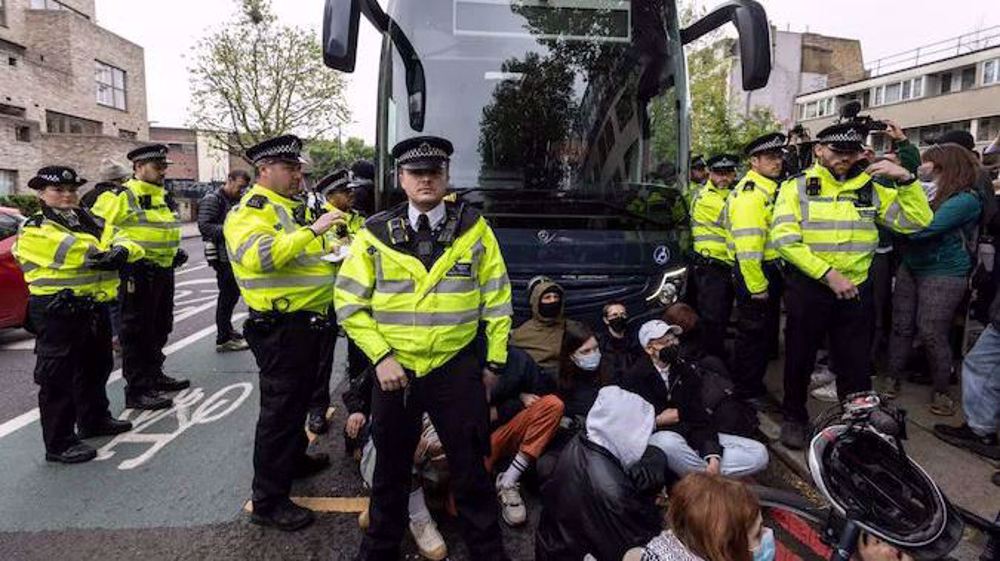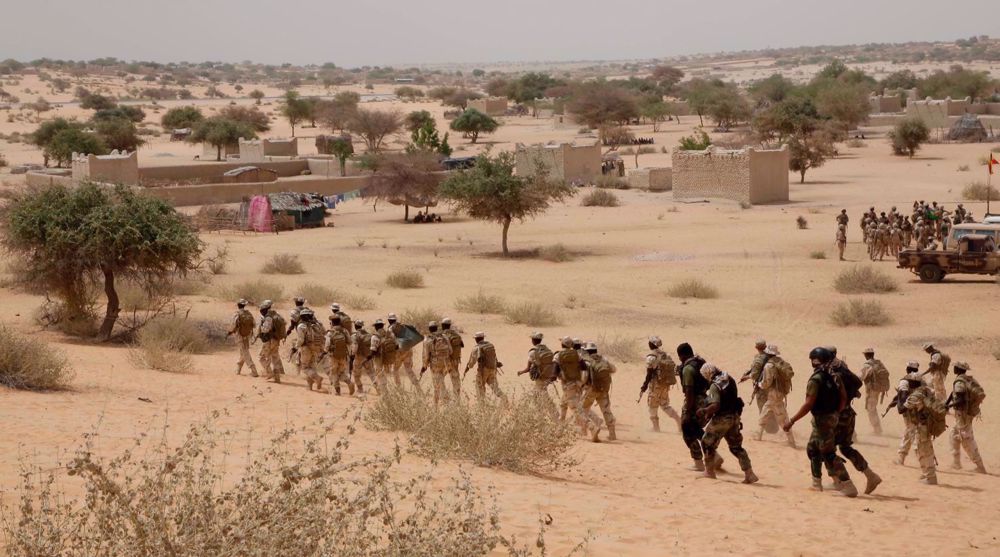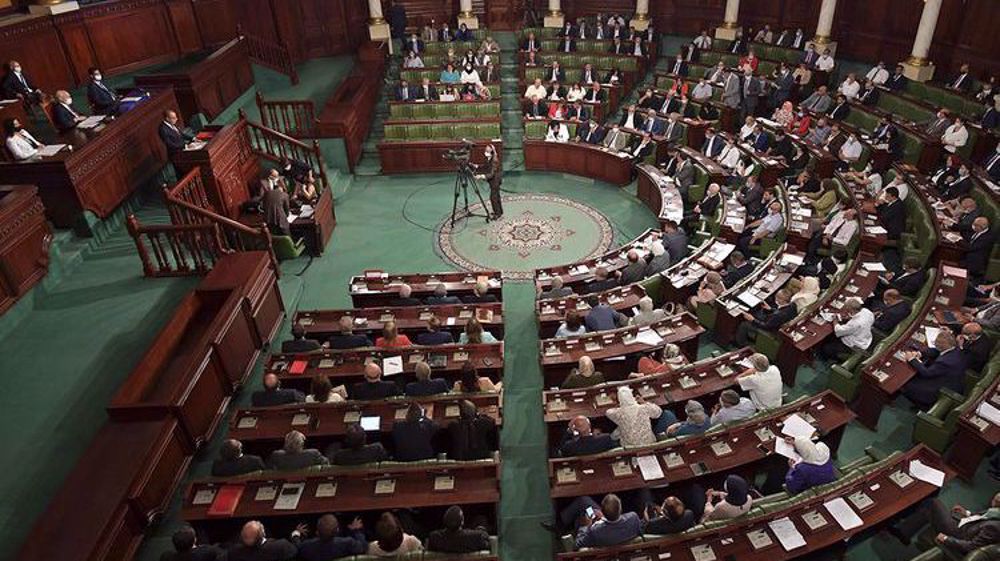Tunisians press on with protests against poverty, high cost of living
Tunisians have once again protested against poverty and high cost of living, in the fourth night of street clashes between riot police and protesters in the North African country.
Tunisian people, in their hundreds, held on Tuesday another protest against economic hardships in the capital, Tunis, after several nights of violent street demonstrations across the country.
The protesters chanted slogans against the government and called for its downfall.
In Sfax, the second largest city in Tunisia, protesters blocked roads with burning tires. Clashes were also reported in the towns of Gafsa, Le Kef, Bizerte, Kasserine, Sousse and Monastir.
"There is a denial and an underestimation of the anger among young people," said Olfa Lamloum, who heads the International Alert peace-building campaign group in Tunisia.
She underlined that Tunisia's past 11 governments "have not had a strategy to answer the central question of employment.”
Lamloum also warned that "as long as there is a purely security response, with mass arrests, and no social or political response, tensions will remain high.”
The powerful labor union and other rights groups have voiced support for peaceful protests against “policies of marginalization, impoverishment and starvation.”
They accuse the Tunisian government of dashing the hopes generated by the 2011 revolution.
The demonstrations began on Friday after a video went viral showing an officer mishandling a shepherd, with more than 600 people having been arrested and troops been deployed in some regions since then.
The protests come even as Tunisian Prime Minister Hichem Mechichi announced on Saturday a major cabinet reshuffle amid unprecedented economic crisis in the country.
A decade ago, Tunisia was beset by violence following a massive uprising – sparked after a fruit seller set himself ablaze in the central town of Sidi Bouzid following an altercation with a police officer -- that led to the downfall of long-time ruler Zine El Abidine Ben Ali.
The revolt inspired other revolutions in a host of Arab dictatorships across the Middle East and North Africa. However, Tunisia was the only nation among other Arab countries in the region that maintained a smooth, peaceful transition to democracy.
The Tunisian economy, which has been crippled in recent years by high debt and declining public services, deteriorated due to the coronavirus pandemic, and a year of political instability has complicated efforts to address such issues.
Tunisia’s tourism-dependent economy shrank 21.6 percent in the second quarter of 2020, compared with the same period last year, due to the COVID-19 outbreak.
Since a general election in 2019, the political class in Tunisia has been more fragmented than ever and paralyzed by infighting, fueling discontent over the continued economic crisis.
Yemen announces expansion of pro-Gaza operations to Mediterranean
Iran FM to attend 15th OIC Islamic summit in Gambia
South Korean ‘die-in’ calls for arms embargo on Israel
Exclusive: Inside story of mass graves at Al-Shifa and Al-Nasser hospitals in Gaza
More Iran universities offer to welcome those expelled from US colleges
Iran-Africa path toward a shared future
Pro-Palestine student protests proliferate across the world
World Press Freedom Day: Palestinian journos win UNESCO prize


















 This makes it easy to access the Press TV website
This makes it easy to access the Press TV website